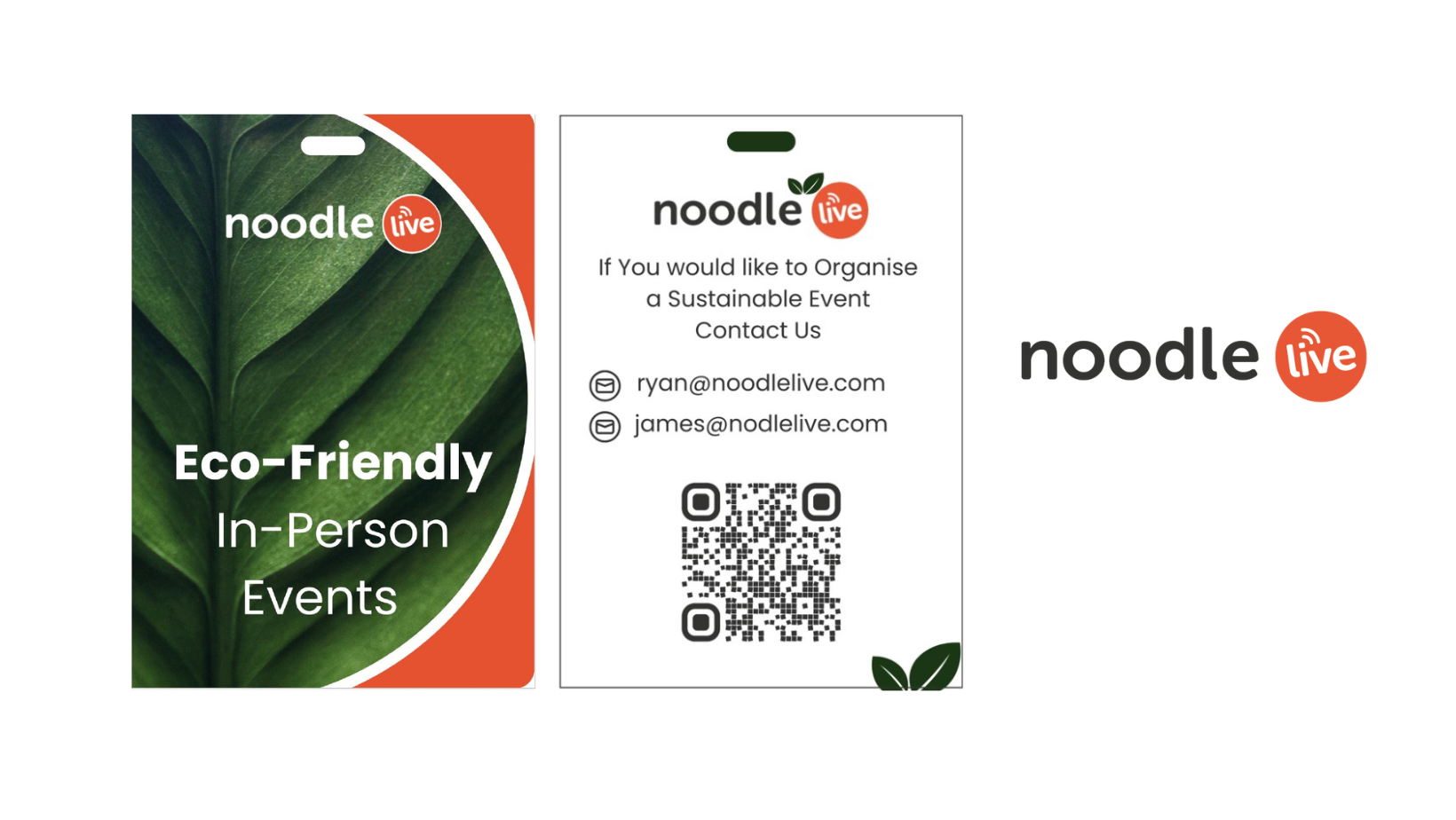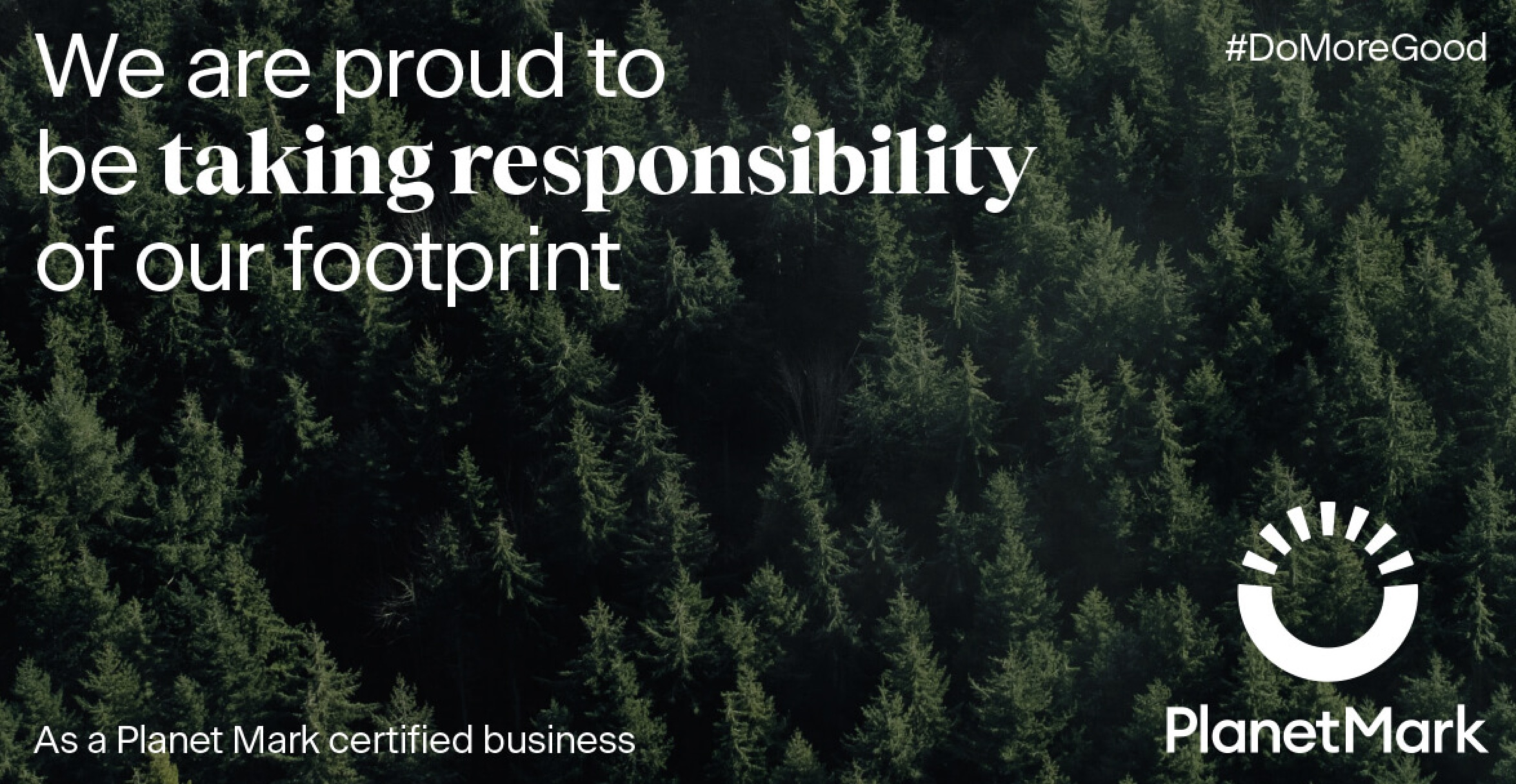Sustainability is the buzzword of the moment, and the event industry is no exception. Between creating our apps for events and researching RFID name badge trends, we’ve been working on our own green credentials and doing some research into ways to be more sustainable. We’ve just released our guide to sustainable events and Noodle Live sustainability manifesto in March.
In the meantime, we thought we’d share some of our findings. Did you know that it’s entirely possible to run a zero-waste, low carbon event – even when you’re working on a grand scale? In fact, the 2012 Olympic Games generated over 10,000 tons of waste and that none of that went to landfill. If it’s possible for the Olympics, it must be possible for the rest of us, right?
#EventProfs around the world are looking out for ways to make their events more sustainable and kinder to the planet. And so are delegates. In 2019, a study by Southern Cross University found that 93% of people are looking to live a more sustainable lifestyle, and Deloitte’s Global Millennial Survey 2019 revealed that climate change was the greatest concern for the upcoming generation. It’s little wonder that CWT Meetings & Events have stated that sustainability will be a key priority in the events industry this year.
So, where do you get started, and what can you do to contribute to cleaning up the industry?
Let’s Start From the Very Beginning
If you want to run a sustainable event, you need to start thinking green from the very beginning. If you really want to have an impact, name sustainability as a key priority from the earliest planning sessions and keep it in mind at every stage of the process, from venue booking to delivery. Make sure you communicate your intentions to everyone involved in the project.
Do a Plastic Audit
Globally, only around 9% of plastic ever created has been recycled. Around 79% is now sitting in landfills or scattered across the environment. Think about all the plastic that was created at your last event. How much space would it take up if you collected it all together? The truth is, 79% of that is sitting in a landfill site somewhere in the world. When you multiply that by all of the events ever staged, it’s a scary thought.
Reducing plastic waste is a great way to make your event more sustainable and it’s where we started with our own sustainability investigation. We looked over all of the waste we created, and looked at ways to reduce or reuse all along the chain. If you’re planning a live event, look at records from your last event (if there was one) and check over plans for your upcoming event to create a full plastic audit. Make sure you include all areas of your event, even outside exhibitors and suppliers. This audit will help you to identify the areas of highest waste, so that you know where the biggest problem areas are and you can start implementing solutions.
Do a Paper Audit
Plastic waste is the biggest cause for concern at most live events, but let’s not forget the humble piece of paper. Live events can produce enormous amounts of leaflets, brochures and other printed materials. Take a look at the different materials being produced for your event and ask yourself if they’re really necessary, or if digital versions could work just as well. A good app for events will allow you to upload your programme in advance, so delegates don’t need a paper copy. Noodle Live event apps allow delegates to access floor plans, session timetables and even personalised schedules, all reducing the need for paper printouts. RFID name badges or wristbands can also be a big help for conferences and exhibitions as they allow delegates to register their interest with individual exhibitors and request more information to be emailed over to them in digital format, avoiding the pile-up of reams of brochures and leaflets.
Invest in Waste Management
However much you try to cut down on waste being produced, inevitably, an event will end up creating rubbish. Invest in a good waste management system with clear recycling points. Restricted apertures on the recycling bins will make people pause and think about what they’re throwing away. Be clear about where your waste and recycling is taken after the event too, ensuring that your recycling is taken to an appropriate location where it will be handled efficiently.
Ask Where Your Energy Comes From
If you’re in charge of your energy supply, take a look at where you get your energy from. There are plenty of green energy suppliers to choose from. If your venue is responsible for energy provisions, ask them how much of their energy is from renewable sources and make it clear that it’s a priority for you. You may not convince them to switch immediately, but you’ll let them know that #EventProfs are interested in renewable energy and may plant a seed for them to switch suppliers in future.
Look at Lighting
Live events often require vast amounts of lighting and electricity. A really simple switch to make is a move towards LED lighting. LED lights are able to convert around 70% of the energy they receive into light energy, which is a lot higher than traditional lighting. A 6 watt LED light produces the same amount of light as a 40 watt incandescent light. Multiply that across your event and you’ve created a huge reduction in energy use.
Go Live
Want to cut down on international travel? Flying is extremely heavy on fossil fuel use, and in an international and well-connected world, it can often be avoided. Consider opening up your event to an international audience via live streaming and online conferencing. You’ll often end up widening the scope of your event and you may well attract a wider audience.
Gather a Green Squad
Make the environment a visible priority at your event with clear signage announcing that you’re looking at ways to reduce your environmental impact and asking for delegate collaboration. You could set up an ideas box where people can post ideas for making your next event even greener. Best of all, you could create a green team to be present at the event to talk to delegates, promote recycling and offer information on the reasons and benefits for reducing plastic waste and energy use. At Noodle HQ, we identified members of the team who are particularly interested in sustainability, and made them our Green Squad, asking them to help us look at our internal processes and output and identify areas where we can improve and make significant reductions in waste.
Have more ideas for sustainable events? We’d love to hear them. Our Green Squad are getting ready to release our very own sustainability manifesto. Get in touch @NoodleLive if you’ve got any ideas or insights for us.


